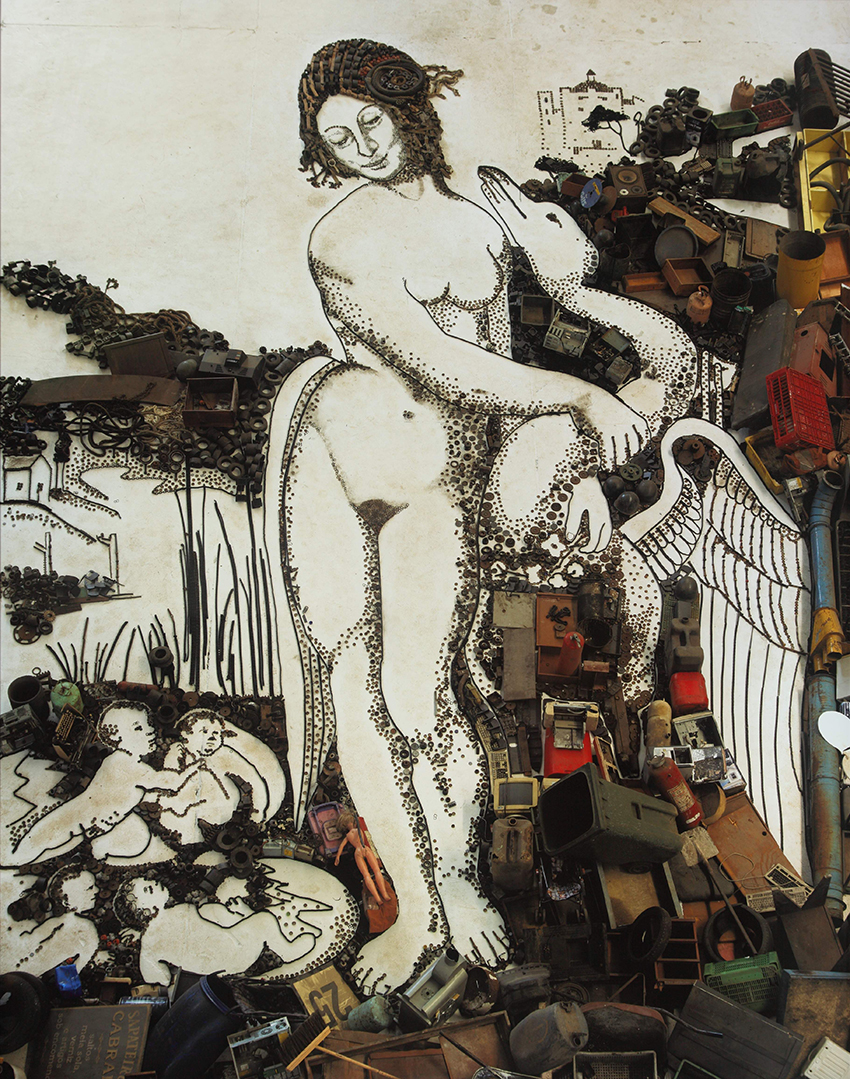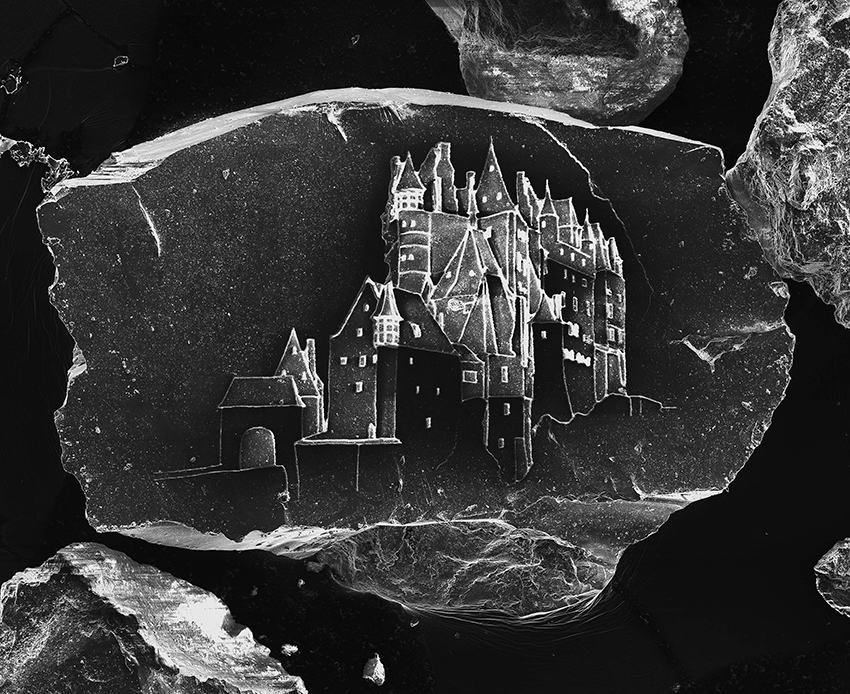
“Leda and the Swan, after Leonardo da Vinci” by Vik Muniz (Brazilian American, b 1961), from the Pictures of Junk series, 2009, chromogenic print. High Museum of Art, Atlanta, purchase through funds provided by patrons of the Second Annual Collectors Evening, 2011, 2011.6. Art ©Vik Muniz/Licensed by VAGA, New York, NY.
ATLANTA, GA. — A major retrospective of acclaimed contemporary Brazilian photographer Vik Muniz will premiere at the High Museum of Art on February 28, kicking off an international tour of the exhibition. Co-organized by the High and the Foundation for the Exhibition of Photography, “Vik Muniz” will examine the full breadth of the imaginative artist’s career and will feature nearly 120 photographs, including many of Muniz’s most recent works. The exhibition will travel following its August 21 closing.
Muniz (b 1961, São Paulo, Brazil) is distinguished as one of the most innovative and creative artists of the Twenty-First Century. He has pushed the definition of photography to encompass a stratum of materials, collaboration with communities and phenomena that cannot be perceived by the human eye. Highlights will encompass the distinctive arc of Muniz’s career, from his incorporation of waste to create iconic images to new works that are at the vanguard of photography in a post-digital age,
Renowned for creating what he calls “photographic delusions,” Muniz works with a dizzying array of unconventional materials —including sugar, tomato sauce, diamonds, magazine clippings, chocolate syrup, dust and junk — to painstakingly design narrative subjects before recording them with his camera.
His resulting photographs often quote iconic images from popular culture and the history of art, while defying easy classification and playfully engaging a viewer’s process of perception. His more recent work uses electron microscopes and manipulates microorganisms to unveil both the familiar and the strange in spaces that are typically inaccessible to the human eye.
Muniz’s wide-ranging inventions will be amply represented in the exhibition, including recent, large photographs created using thousands of found anonymous snapshots, which are arranged to reference images from Muniz’s own family albums
Prints from Muniz’s “Colonies” series, for which the artist collaborated with MIT scientists to employ microorganisms, including bacteria and even cancer cells, to multiply in choreographed designs. In these photographs, Muniz morphs the frightening into the beautiful, producing striking, intricate patterns from materials with largely negative connotations.
New photographs also will include examples from Muniz’s “Sand Castles” series, for which he built the world’s smallest sandcastles using a scanning electron microscope to etch micro-drawings of castles on individual grains of sand. These photographs demonstrate Muniz’s continued interest in experimentations with scale; rather than featuring massive constructions photographed from a heightened vantage point, these sandcastle “drawings” are less than half a millimeter in length.

“Sandcastle #10” by Vik Muniz, from the Sandcastles series, 2014, chromogenic print. Courtesy of Sikkema Jenkins & Co., New York. Art ©Vik Muniz/Licensed by VAGA, New York, NY.
Other key works featured will include prints from the “Pictures of Garbage” series, for which Muniz worked with pickers from the world’s largest landfill in Rio de Janeiro to construct images using garbage from the dump. These photographs include “Leda and the Swan, after Leonardo da Vinci,” a photograph in the High’s permanent collection.
Muniz’s work has been exhibited worldwide and is currently included in the collections of major international museums such as the Art Institute of Chicago; Museum of Contemporary Art, Los Angeles; The J. Paul Getty Museum; The Metropolitan Museum of Art; The Museum of Modern Art, New York; Museu de Arte Moderna de São Paulo; the Victoria and Albert Museum in London; and the High Museum of Art, among others.
Recently, Muniz was commissioned by the Metropolitan Transportation Authority to contribute artwork for the 72nd Street and Second Avenue subway station in New York, which is slated open to the public in December.
In addition to his artistic activities, Muniz’s documentary Waste Land (2010) was nominated for an Academy Award and won the Sundance Film Festival Audience Award for Best Film. In 2011 UNESCO nominated him Goodwill Ambassador, and in January 2013 he received the Crystal Award from the World Economic Forum.
Muniz lives and works in New York and Rio de Janeiro.
The High is at 280 Peachtree Street NE. For further information, www.high.org or 404-733-4400.

